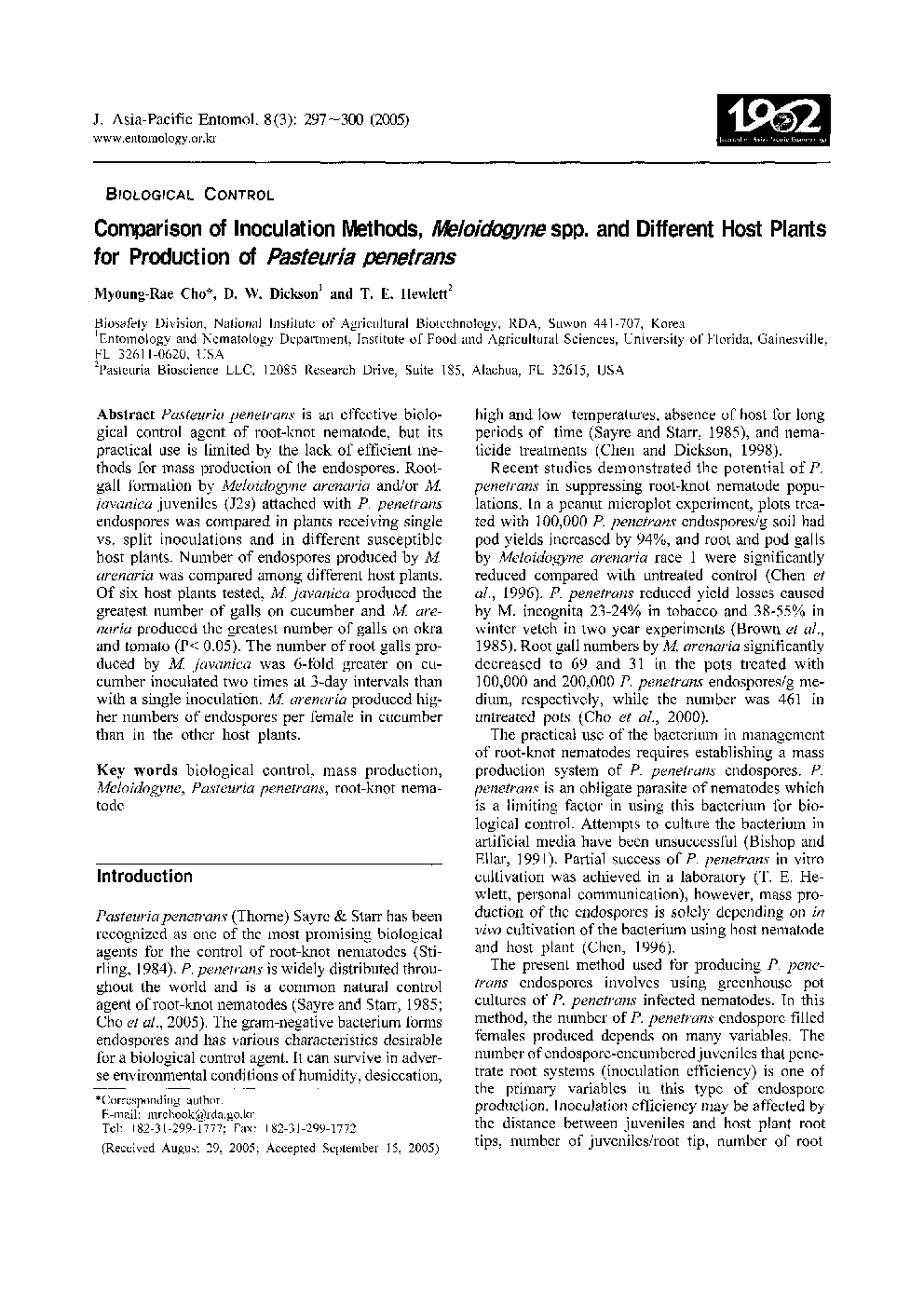| Article ID | Journal | Published Year | Pages | File Type |
|---|---|---|---|---|
| 9476749 | Journal of Asia-Pacific Entomology | 2005 | 4 Pages |
Abstract
Pasteuria penetrans is an effective biological control agent of root-knot nematode, but its practical use is limited by the lack of efficient methods for mass production of the endospores. Root-gall formation by Meloidogyne arenaria and/or M. javanica juveniles (J2s) attached with P. penetrans endospores was compared in plants receiving single vs. split inoculations and in different susceptible host plants. Number of endospores produced by M arenaria was compared among different host plants. Of six host plants tested, M. javanica produced the greatest number of galls on cucumber and M. arenaria produced the greatest number of galls on okra and tomato (P < 0.05). The number of root galls produced by M. javanica was 6-fold greater on cucumber inoculated two times at 3-day intervals than with a single inoculation. M. arenaria produced higher numbers of endospores per female in cucumber than in the other host plants.
Related Topics
Life Sciences
Agricultural and Biological Sciences
Animal Science and Zoology
Authors
Myoung-Rae Cho, D.W. Dickson, T.E. Hewlett,
